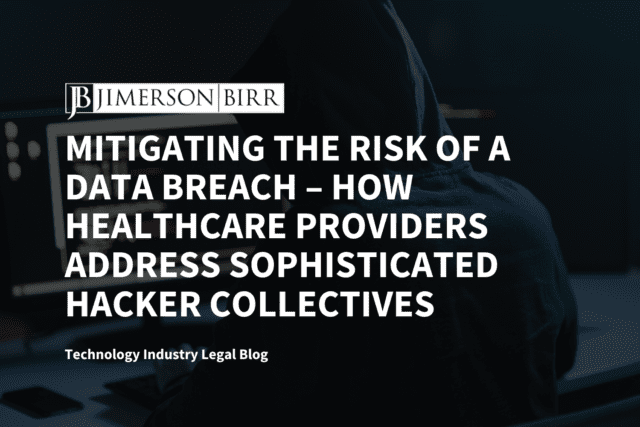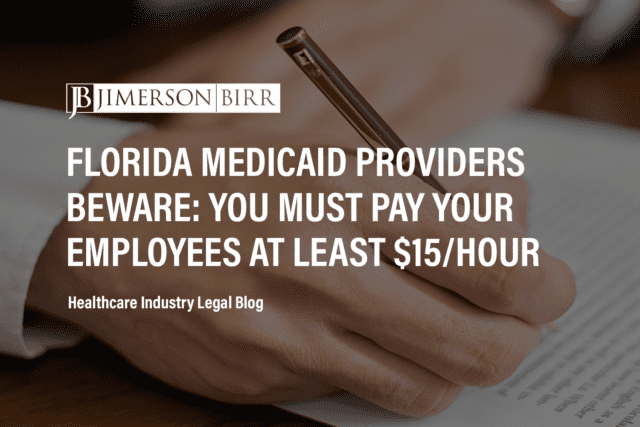How does healthcare professional licensing and discipline affect companies?
Healthcare professional licensing and discipline play a crucial role in ensuring the quality and integrity of healthcare services provided by companies, including physicians and nurses. The licensing process establishes standards for education, training, and competency that healthcare professionals must meet to practice legally. Companies rely on licensed professionals to deliver safe and effective care to patients, and violations of licensing requirements can have significant implications for both individual practitioners and the organizations they work for.
For companies like hospitals, clinics, and healthcare agencies, employing licensed healthcare professionals is essential for maintaining compliance with regulatory requirements and accreditation standards. Operating with unlicensed or improperly licensed staff can lead to legal and regulatory consequences, including fines, loss of accreditation, and reputational damage. Therefore, companies must verify the credentials and licensure status of healthcare professionals before hiring them and ensure that employees maintain active and valid licenses throughout their employment.
Furthermore, healthcare companies have a duty to monitor the licensure status and disciplinary history of their employees regularly. Failure to do so can result in allegations of negligent hiring or retention, exposing the company to legal and financial liabilities. Therefore, companies must have systems in place to track and verify the licensure status of healthcare professionals and promptly address any concerns or disciplinary actions that arise.
Need help regarding healthcare, including healthcare professional licensing and discipline? Schedule your consultation today with a top healthcare attorney.
In Florida, which laws and regulations apply to healthcare professional licensing and discipline?
In Florida, healthcare professional licensing and discipline, including for physicians and nurses, are governed by a combination of state statutes, regulations, and administrative rules. Some of the key laws and regulations applicable to healthcare professional licensing and discipline in Florida include:
- Florida Medical Practice Act: The Florida Medical Practice Act governs the licensure and regulation of physicians (medical doctors) in the state. It establishes requirements for obtaining and maintaining a medical license, sets standards of practice, and outlines the disciplinary process for violations of professional conduct.
- Nurse Practice Act (Florida Statutes §§ 464.001-464.027): The Florida Nurse Practice Act regulates the licensure and practice of registered nurses (RNs), licensed practical nurses (LPNs), and advanced practice registered nurses (APRNs) in the state. It defines the scope of practice for each category of nurse, establishes licensing requirements, and outlines the disciplinary process for violations of nursing laws and regulations.
- Florida Administrative Code, Division 59A: This division contains rules and regulations adopted by state agencies, including the Florida Department of Health, to implement and enforce healthcare licensing laws and regulations. This division provides detailed guidance on licensing requirements, standards of practice, and disciplinary procedures for healthcare professionals, including nurses and physicians.
What are common issues regarding healthcare professional licensing and discipline that lead to litigation?
Common issues regarding healthcare professional licensing and discipline that can lead to litigation, involving both nurses and physicians, include:
- Malpractice Allegations: Malpractice claims are among the most common issues leading to litigation for both nurses and physicians. Allegations of medical errors, negligence, failure to diagnose, surgical mistakes, medication errors, and other instances of substandard care can result in disciplinary actions against their licenses. These claims often involve allegations of harm or injury to patients, and litigation may ensue to seek compensation for damages.
- Medication Errors: Medication errors, including administration of the wrong medication or dosage, failure to verify patient allergies, and improper documentation of medication administration, can result in harm to patients and lead to disciplinary actions against nurses and physicians. Litigation may occur if patients suffer adverse effects or injuries due to medication errors.
- Substance Abuse: Substance abuse issues among healthcare professionals, including nurses and physicians, can lead to disciplinary actions and litigation. Substance abuse impairs judgment, decision-making, and patient care, posing significant risks to patient safety. Healthcare professionals who fail to address substance abuse issues may face legal consequences and loss of licensure.
- Criminal Offenses: Nurses and physicians who are convicted of criminal offenses, such as drug-related crimes, assault, fraud, or other offenses, may face disciplinary actions and litigation. Criminal convictions raise concerns about the individual’s fitness to practice safely and ethically, potentially resulting in license suspension or revocation.
- Fraud and Abuse: Both nurses and physicians may face disciplinary actions and litigation for involvement in healthcare fraud and abuse, such as billing for services not rendered, kickback schemes, or improper financial arrangements. Violations of laws such as the False Claims Act, Anti-Kickback Statute, or Stark Law can result in legal consequences and loss of licensure.
We are value-based attorneys at Jimerson Birr, which means we look at each action with our clients from the point of view of costs and benefits while reducing liability. Then, based on our client’s objectives, we chart a path to seek appropriate remedies.
To determine whether your unique situation may necessitate litigation, please contact our office to set up your initial consultation.
What steps should businesses take to minimize the risk of litigation over healthcare professional licensing and discipline?
Businesses in the healthcare industry can take several steps to minimize the risk of litigation over healthcare professional licensing and discipline for both nurses and physicians:
- Thorough Credentialing and Background Checks: Implement rigorous credentialing processes to verify the qualifications, licensure status, and professional history of nurses and physicians before hiring or granting privileges. Conduct comprehensive background checks to identify any disciplinary actions, malpractice claims, or criminal offenses that may pose risks to patient safety or lead to litigation.
- Ongoing Monitoring and Compliance: Establish systems for ongoing monitoring of nurses’ and physicians’ licensure status, disciplinary history, and compliance with professional standards and regulations. Regularly review and update credentialing files to ensure that all staff members remain in good standing with their respective licensing boards and meet continuing education requirements.
- Clear Policies and Procedures: Develop clear policies and procedures outlining expectations for professional conduct, adherence to regulatory requirements, and reporting mechanisms for potential violations. Provide training to nurses and physicians on these policies and procedures and ensure they understand their obligations to maintain licensure and comply with regulatory standards.
- Effective Communication and Documentation: Encourage open communication and collaboration among healthcare professionals, emphasizing the importance of accurate documentation, proper patient care protocols, and timely reporting of incidents or concerns. Ensure that nurses and physicians understand the significance of thorough documentation in preventing misunderstandings, mitigating risks, and defending against litigation.
- Supportive Work Environment: Foster a supportive work environment that prioritizes patient safety, professional development, and ethical behavior. Provide resources and support for nurses and physicians to address stress, burnout, and substance abuse issues proactively, minimizing the likelihood of professional misconduct or lapses in judgment that could lead to disciplinary actions.
- Compliance with Regulations and Standards: Stay informed about relevant state and federal laws, regulations, and professional standards governing healthcare practice, licensure, and discipline. Ensure that business practices, policies, and procedures align with these requirements and that nurses and physicians receive training on compliance obligations to minimize the risk of litigation.
- Response to Complaints and Investigations: Establish protocols for responding to complaints, incidents, or investigations involving nurses and physicians promptly and effectively. Conduct thorough internal investigations, document findings, and take appropriate corrective actions, such as disciplinary measures or remedial training, to address concerns and mitigate risks of litigation.
Frequently Asked Questions
What are the consequences of disciplinary actions against a healthcare professional?
Disciplinary actions against healthcare professionals can result in a range of consequences, including warnings, fines, probation, license suspension, license revocation, mandated education or training, restrictions on practice, and referral to law enforcement for criminal prosecution in severe cases.
How can I verify the licensure status of healthcare professional?
You can verify the licensure status of a healthcare professional by contacting the appropriate state licensing board or regulatory agency for the profession in question. Many states also offer online license verification tools that allow you to search for licensed healthcare professionals by name, license number, or other criteria.
How are complaints against healthcare professionals investigated?
Complaints against healthcare professionals are typically investigated by state licensing boards, regulatory agencies, or professional associations responsible for overseeing the respective professions. Investigations may involve reviewing medical records, interviewing witnesses, gathering evidence, and assessing whether the healthcare professional’s conduct violated licensing laws or standards of practice.
Have more questions about healthcare professional licensing and discipline?
Crucially, this overview of healthcare professional licensing and discipline does not begin to cover all the laws implicated by this issue or the factors that may compel the application of such laws. Every case is unique, and the laws can produce different outcomes depending on the individual circumstances.
Jimerson Birr attorneys guide our clients to help make informed decisions while ensuring their rights are respected and protected. Our lawyers are highly trained and experienced in the nuances of the law, so they can accurately interpret statutes and case law and holistically prepare individuals or companies for their legal endeavors. Through this intense personal investment and advocacy, our lawyers will help resolve the issue’s complicated legal problems efficiently and effectively.
Having a Jimerson Birr attorney on your side means securing a team of seasoned, multi-dimensional, cross-functional legal professionals. Whether it is a transaction, an operational issue, a regulatory challenge, or a contested legal predicament that may require court intervention, we remain tireless advocates at every step. Being a value-added law firm means putting the client at the forefront of everything we do. We use our experience to help our clients navigate even the most complex problems and come out the other side triumphant.
If you want to understand your case, the merits of your claim or defense, potential monetary awards, or the amount of exposure you face, you should speak with a qualified Jimerson Birr lawyer. Our experienced team of attorneys is here to help. Call Jimerson Birr at (904) 389-0050 or use the contact form to schedule a consultation.

We live by our 7 Superior Service Commitments
- Conferring Client-Defined Value
- Efficient and Cost-Effective
- Accessibility
- Delivering an Experience While Delivering Results
- Meaningful and Enduring Partnership
- Exceptional Communication Based Upon Listening
- Accountability to Goals










